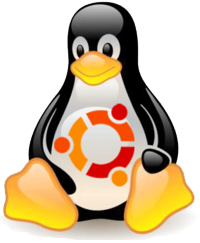
Google has now embraced that vision with its Android@home offering, announced yesterday.
While most reporters focused either on the home entertainment legalities or the early peripherals running on the service, the bling of the thing, I think it's the overall vision that's more important.
The vision is based on a single word. Linux. Android, wherever it lives, is a Linux, meaning it's a fully-featured operating system with 45 years of experience behind it, which can run on mainframes (or the cloud), home servers (tablets etc.) or clients (phones, home stereos, robots, cars, etc. etc. etc.)
New clients can be implemented through Arduino (right), an open source prototyping system that currently only supports USB, but which will quickly evolve under Google's direction into single-chip systems controlled through wireless protocols like Bluetooth, NFC, and WiFi.

It's unfortunate, a reflection of our bureaucratic attitude toward life-saving technology, that medical devices aren't part of this first flight, but they will appear.
Whether you've been diagnosed with a chronic condition or you're just exercising, vital signs will become available instantly, both to you and (in an emergency) to doctors and emergency care workers. All this will be controlled by software and networks so that, if like my late professor Richard Schwarzlose (above), you're riding your bike and a heart attack is coming on, the ambulance can be alerted before you die, can find you on the road, and can save your life, based on signals coming from something you're wearing.
I've been calling this a “killer app” but it's increasingly important as we age, and we're all aging. The medical industry has not embraced what's possible because device makers are all arguing over proprietary advantage, while hospitals and insurers argue about customer control and so-called privacy advocates try to stop technology in its tracks. Android cuts through all that, giving developers a common platform on which to work.
We all go down a staircase of care as we head into that good night. We don't think about it when we're ambulatory and our minds are clear. But if you're lucky you will someday need a home health care worker, then managed care, then nursing care, and systems like this are the only way we have to stretch human labor over that immense market.
Always-on medical systems make such workers far more productive, while improving the quality of life and appearance of independence for patients. This means more care at lower cost, and with higher wages for care-givers, resulting in more dignity for your parents and (in time) for you.
By coming at this from the “want it” angle of home automation, Google has created a platform for the “need it” applications of your future, and mine.










